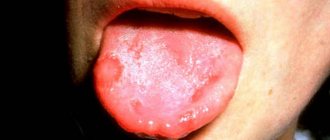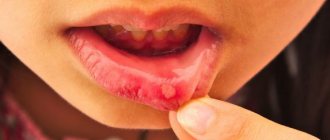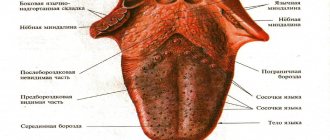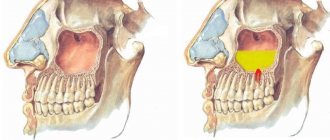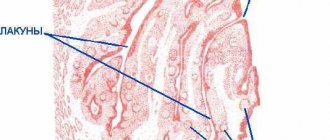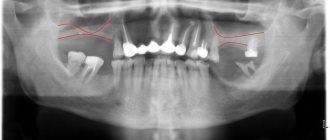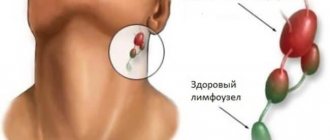The smell of acetone on your breath - does diet matter?
The content of the article
An acetone odor from the breath is felt in people on a low-sugar diet. A decrease in the concentration of carbohydrates leads to the fact that the main source of energy for the body becomes fats, which form ketone bodies. Fats will also be the main source of energy received by the body in case of fasting and a small supply of sugars.
Symptoms of elevated ketone levels due to the ketogenic diet:
- Smell of acetone from the mouth.
An increased concentration of ketones is indicated by a noticeable smell of sour apples from the mouth. - Decreased activity
. Reducing the intake of carbohydrates initially leads to a feeling of constant fatigue, dizziness and nausea. Physical strength also decreases. This state lasts for several days or weeks until the body begins to burn more fat and switches to a new source of energy. - Disruption of the gastrointestinal tract
. The ketogenic diet can also lead to diarrhea and constipation. - Insomnia.
Sleep disturbances are a kind of signal from the body about carbohydrate deficiency. - Decreased appetite.
Patients begin to lose weight and appetite. This is due to the fact that a decrease in the concentration of carbohydrates in the blood leads to a decrease in the concentration of insulin and an increase in glucagon, which stimulates the oxidation of fatty acids. Increased protein degradation when using this diet can lead to negative consequences due to protein deficiency.
A low-carbohydrate, low-fat diet that leads to ketosis has long been used to treat epilepsy, especially in children.
Prevention
- To prevent CG, high-carbohydrate (bread, cereals, rice, pasta, corn tortillas) and high-protein foods (red meat, chicken and turkey, fish, beans, eggs, nuts) are recommended. Do not allow your child to take long breaks from eating (maximum 6 hours); It is advisable that the child has at least 5 meals a day. A snack before bed is a must (milk, bun, cereal, bananas)!
- In case of an acute infectious disease, fever, nausea, vomiting, or loss of appetite, you should immediately begin giving the child sweet drinks (juices, lemonades, sweet tea, Coca-Cola). It is not necessary and useless to try to feed a child with CG only Borjomi/Narzan/Essentuki/saline solutions: they can prevent dehydration, but without sweet drinks it will not be possible to get the child out of CG, so saline solutions are only an additional measure to sweet drinks.
- If you are constantly vomiting and cannot replace fluid loss at home, you should immediately seek help from a doctor. Only if home drinking does not produce an effect, you should drip solutions intravenously - this method of treatment should not be used as a basic one.
What exactly CG is not:
- CH is not a disease, but only a violation of the tolerance to prolonged fasting
- CG is not a “neuroarthritic diathesis” (there is no such disease). CG is a real problem, “neuro-arthritic diathesis” is a mythical animal, therefore, these two things are not related. What does not exist should not be treated.
- CG does not lead to diabetes and is in no way associated with it.
- CH is not and never has been a “disorder of purine metabolism.” If someone claims the opposite, he does not understand either the metabolism of purines, or the metabolism of carbohydrates, or metabolism in general. CG is not a disorder of uric acid metabolism and is not associated with gout. A restrictive diet is not indicated, it is dangerous and harmful for CG, and people who recommend that children with CG avoid meat and carbohydrates have absolutely no understanding of this condition.
- “Gall bladder bend” is a variant of the normal structure of the gallbladder, and it is very common; this feature is in no way related to CG. By the way, if you have an excess of gallstones, you don’t need a diet either.
- KG is not a kidney disease.
- CG is not a liver disease.
So, the acetonemic state/ketotic hypoglycemia is not a disease, but a metabolic feature that requires the parent not to torment the child with diets and endless searches for the cause, but attention, so as not to miss and prevent the onset of a crisis. Timely drinking and a “sweet diet” will allow the child to safely outgrow this condition.
Acetone breath and diabetes
Diabetes is a group of metabolic diseases that involve hyperglycemia—high blood sugar levels—associated with impaired insulin function or secretion. The patient's body, which cannot use carbohydrates as a source of energy as a result of impaired insulin secretion or action, begins to use fats for this purpose. As a result, ketone bodies are formed, which is the reason for the smell of acetone in the mouth. Some patients compare this smell to the smell of acid, gas or gasoline.
Chronic hyperglycemia causes damage to various organs, mainly the kidneys, eyes, blood vessels, heart and nerve fibers. There are several types of diabetes:
- type 1 diabetes;
- type 2 diabetes;
- gestational diabetes.
Type 1 diabetes is characterized by an absolute lack of insulin due to the destruction of beta cells in the pancreas. But the most common form of diabetes is type 2, which is characterized by impairment of both insulin secretion and function.
Diabetes
Typical symptoms of diabetes: increased thirst, polyuria, dehydration, drowsiness and weakness.
Diagnostic measures
Diagnostic features depend on the preliminary diagnosis. The patient may be asked:
- Pass the UAC and BAK. Based on their results, it will be possible to understand whether there is an inflammatory process and whether the kidneys and liver are functioning normally.
- Donate blood for hormones. First of all, insulin levels are always determined to confirm or deny the presence of diabetes. Women may have their blood taken to determine hCG, progesterone, and estrogen.
- Undergo an ultrasound examination. During an ultrasound, the condition of the kidneys, liver, and pancreas is checked.
- Get a computed tomography scan of the abdomen and an MRI of the brain.
In each specific case, the diagnostic package is unique. A personal approach allows the doctor to immediately make the correct diagnosis and select effective treatment for the patient. The fight against acetone odor is always aimed at eliminating the root cause. Therefore, there cannot be a single scheme for overcoming an uncomfortable symptom.
Smell of acetone on the breath - ketoacidosis
Patients with diabetes can develop a life-threatening complication called ketoacidosis. This is a complex of acid-base disorders in which ketones appear in the urine and blood. This condition occurs as a result of insulin deficiency. Ketone bodies are most often produced in patients with type I diabetes, but may be present in test results in patients with other types of diabetes.
Sour breath is not the only symptom of this type of metabolic acidosis. Dehydration, glucose in the urine, electrolyte disturbances, disturbances of consciousness, feelings of weakness, drowsiness, vomiting, nausea, abdominal pain, chest pain, headache, dizziness, flushing, rapid heartbeat and rapid breathing are also observed. Without treatment, acidosis can cause coma.
In addition to diabetes, ketoacidosis and therefore acetone breath can cause:
- bacterial, fungal, viral infections, which increase the need for insulin;
- errors in insulin treatment;
- heart attack and stroke;
- pancreatitis.
Risk factors for the appearance of an acetone odor when drinking alcohol
If a person constantly drinks beer or other drinks, the risk of increased odor increases significantly. But some pathologies can also contribute to this, such as:
- food imbalance;
- diseases of the kidneys or pelvis;
- inflammation of the thyroid gland;
- heart diseases;
- disruptions in liver function;
- the development of a viral infection in a person, which leads to an increase in temperature.
If the drinker has one of the above diseases, then the risk of an acetone smell increases greatly. In addition, in this case, the smell from the mouth will last much longer.
Since the reasons for this phenomenon have become clear, we now need to understand whether drinking alcohol actually influenced the appearance of the smell.
To do this, it is important to know the symptoms and signs indicating that the “amber” actually appeared due to alcohol.
Acetone smell from child's mouth
Children's breath smells like acetone most often due to type I diabetes. The disease develops slowly and insidiously, so parents often do not know that their child is sick. In addition, young patients often experience weight loss, excessive thirst, weakness, and pollakiuria.
This type of odor can also occur when a child doesn't drink enough. Sometimes parents report an ammonia odor from their child's mouth during an infection such as pharyngitis.
A strange smell from the mouth should prompt parents to contact a pediatrician, who will prescribe the necessary examinations.
Other causes of the problem
Negative symptoms may result from:
- diseases of the gastrointestinal tract;
- damage to blood vessels;
- severe pregnancy;
- infections;
- "fasting" days.
The reasons can be very different and most often, without medical help, a person cannot understand what is wrong. Therefore, you should not self-medicate and experiment with your own health. The most reasonable thing is to see a doctor and get blood and urine tests.
Thyroid dysfunction
The appearance of a ketone odor may be one of the signs of thyrotoxicosis. With this pathology, the thyroid gland produces an excess amount of hormones. This leads to the following symptoms:
- severe weight loss;
- bulging eyes;
- enlargement of the front of the neck (in severe cases, a goiter appears);
- tachycardia;
- nervousness;
- excessive sweating and feeling hot;
- fatigue;
- tremor of the limbs.
Why does a person smell like acetone with thyrotoxicosis? Thyroid hormones stimulate the fat burning process. Their excess leads to accelerated lipid metabolism. As a result, the patient loses a lot of weight, and ketone bodies accumulate in his body. This is what causes the smell.
A patient with thyrotoxicosis needs to take iodine-based medications. After normalization of the thyroid gland, the unpleasant odor disappears.
How to overcome unpleasant amber
It’s worth noting right away that the aroma will completely disappear only when the breakdown of alcohol leaves the body. However, you can take some measures that will help you quickly overcome this unpleasant condition:
- you need to take a shower in the morning;
- You can overcome the smell by drinking coffee, sweet drinks or mineral water;
- you can also drink brine, which will quickly kill the amber;
- Be sure to brush your teeth and rinse your mouth;
- Lollipops and chewing gum will help temporarily relieve a person of the smell.
But before overcoming this phenomenon, it is worth carefully studying its symptoms - suddenly the acetone smell appeared not as a result of drinking alcohol, but due to the development of a pathology in the body that requires urgent treatment.
(Visited 36,058 times, 5 visits today)
Liver diseases
If a person smells of acetone when breathing, this may indicate liver pathology. It is in this organ that the process of breakdown of fatty acids and the formation of ketone bodies occurs. When liver cells are damaged, lipid metabolism is disrupted. This leads to the accumulation of ketones.
Most often, ketoacidosis occurs with hepatitis. Liver inflammation is accompanied by the following symptoms:
- yellowing of the mucous membranes and whites of the eyes;
- skin itching;
- a feeling of heaviness on the right under the ribs;
- fatigue;
- nausea;
- poor appetite.
The patient is prescribed hepatoprotectors, antiviral drugs, as well as a diet limiting spicy, salty and fatty foods.



